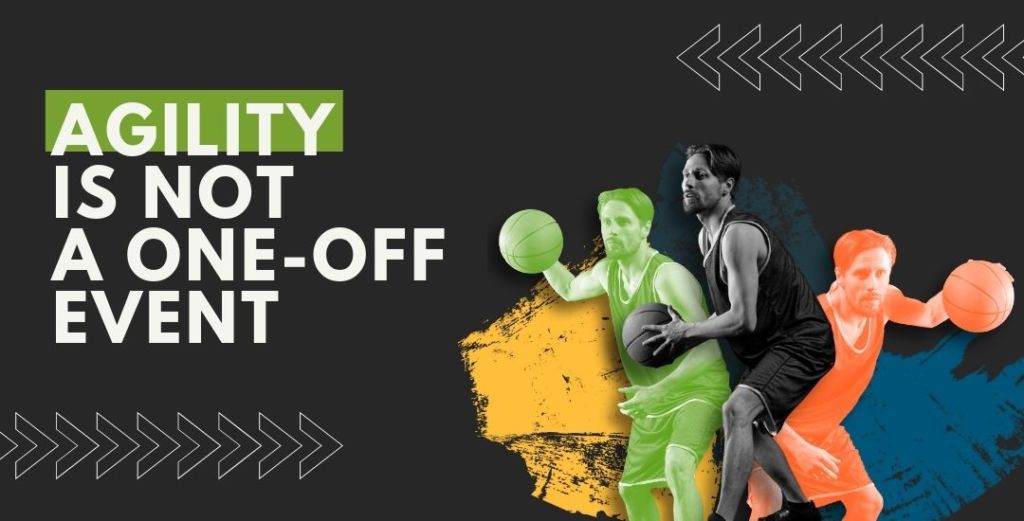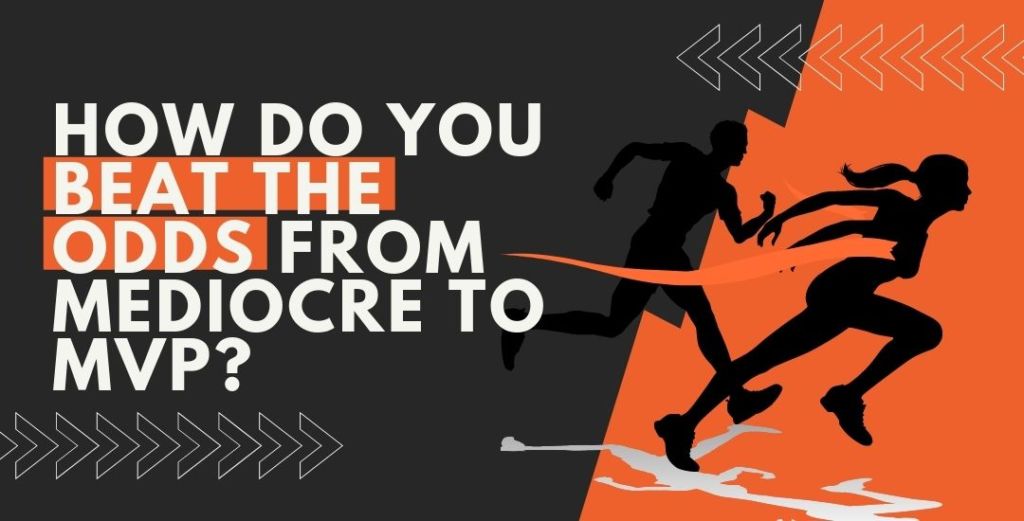Everyone has an opinion on sportsmanship after our Olympics season. Winners get lauded, losers get a pat on the back.
We can undoubtedly tally up our wins and losses similarly: which business pivots worked, what decisions were timely, whose leadership made a difference – sixteen months into the pandemic.
But the game is not over; success is not binary.
Here are four sporting lessons on agility for business leaders to help get your game on:

Agility isn’t just about speed. It’s a series of agile moves focused on growth and sustained efforts.
Borrowing a basketball analogy, we consider the “Triple Threat” position, where a player has four options: shoot, dribble, pass the ball or abandon the game.
Analysing the market potential, core competencies and domain expertise, a business leader can choose to:
- Shoot – Scoring, as quickly as possible
- Dribble – Get into a better position, such as to develop competencies for future opportunities
- Pass – Dramatically change direction and strategy; but get ready gain to receive the ball again
- Abandon the game & fail fast – Tap out, recover and regroup to improve your game.
Now, the players and the game keeps changing. While you can lead in the scoreboard in the first quarter, it doesn’t determine your performance in the next.
Business leaders need to master making a series of moves, and above all, consistently make choices: because as long as you’re in the game, you always have a choice.
As leaders, we are human first, leaders second. And as humans, we default to preferring the status quo. It’s an unnatural state to thrive in. We naturally default to inertia.
There’s no divining rod for where we’re heading, but constantly anticipating change gives you a head start.
Similar to the game in the court, this happens with some foresight on understanding the range of possibilities that may happen, such as market conditions, patterns of movement, or competitor advantages.
As events develop, it’s important to act on imperfect information to understand and experience outcomes, and the iterative process of continuous improvement.
These are all choices, and sometimes making a decision is sometimes worse than making a bad decision.
Even when backed into a corner, choosing to retreat is a choice. There is no shame in retreating; it is not failure. Not course-correcting is.

Leaders who only play the short game make safe bets and avoid risky moves, and pat themselves on the back after scoring.
Playing the long game requires stamina, placing bets on what big moves can beat the odds. This is strategic decision-making that requires tapping into the enablers of agility: reserves, skillsets and networks.
What’s commonly misunderstood is that reserve refers to capital, but overlook people, skills and time – untapped potential.
To fall back on another sport, baseball: Moneyball was groundbreaking in how leagues in evaluating, assembling and trading players to form a winning team based on data science.
But valuation based on past performance is no longer an advantage.
Trevor Bauer famously transformed himself as a mediocre baseball athlete into a $13 million-a-year All-Star pitcher. His singular talent? Relentless, data-driven focus on self-improvement.
Beyond baseball, the authors behind The MVP Machine share are lessons for everyday life: how success stems not from focusing on finished products, but from making the most of untapped potential.
No amount of theorising will help you get better at getting better. Get out on the court, get your game on.
